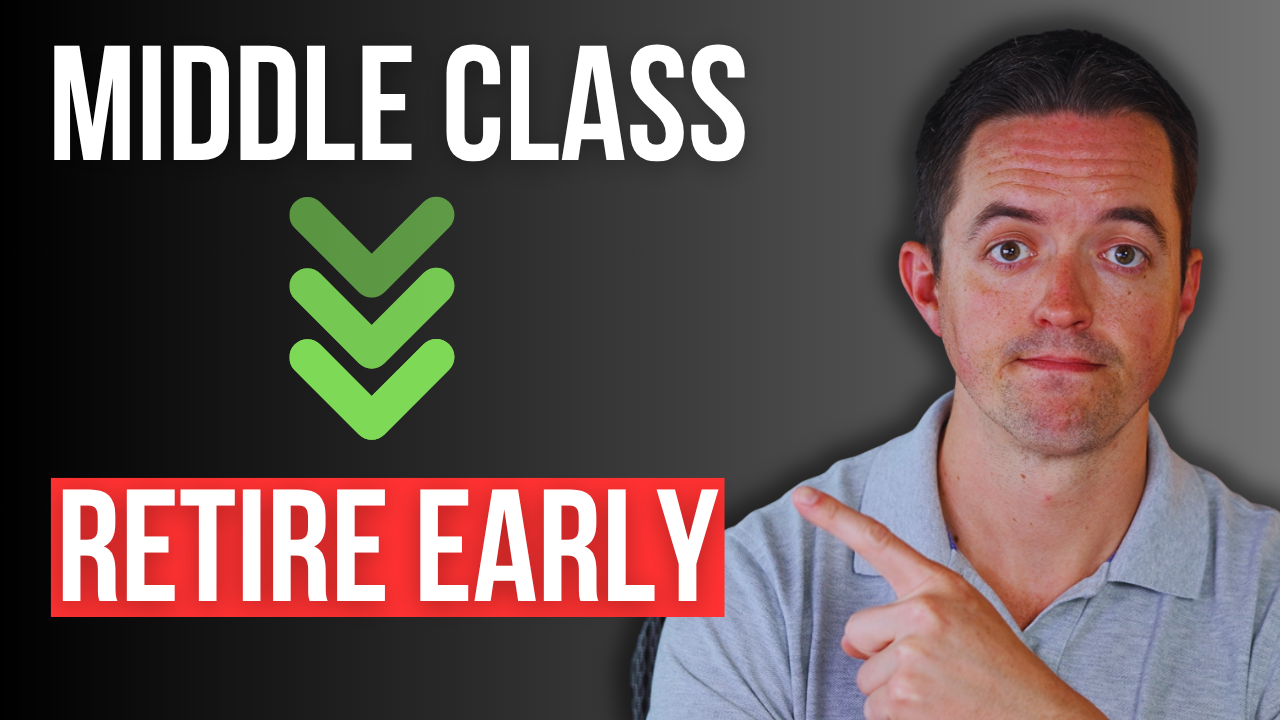
Retiring early isn’t just for the wealthy. Even if you're middle class and don’t earn a high income, you can still achieve early retirement with the right strategy and mindset. While sensational headlines like “Is $1 Million Enough to Retire?” can make early retirement feel out of reach, the truth is, many people retire comfortably with far less.
In this guide, we’ll walk through six expert-backed tips that make early retirement possible for everyday Americans—especially those navigating the middle class grind.
Watch on YouTube:
If you want to retire early, your first priority should be getting rid of any high-interest debt, especially credit card balances and personal loans. These types of debt often carry interest rates over 20%, which can severely hinder your ability to save and invest for retirement.
There are two proven strategies to pay down debt:
With the exception of contributing enough to get your employer’s 401(k) match, it’s usually smarter to delay investing until your high-interest debt is under control. That's because the interest you're paying on credit cards is likely more than you’d earn from most investments.
Next, build an emergency fund to prevent future debt. A common rule of thumb is to save 3 to 6 months of expenses in a high-yield savings account or a regular bank account. This money acts as a buffer for unexpected costs like car repairs, medical bills, or job loss.
However, if you have variable income—such as in real estate or sales—you may want to save 6 to 12 months’ worth to create a larger cushion.
By having cash on hand, you won’t be forced to lean on credit cards or disrupt your long-term investments if a financial emergency arises.
Many people only save into a 401(k), but if you want to retire early, it’s important to diversify your savings across three tax buckets:
Why does this matter for early retirees? If you retire before age 59½, withdrawals from traditional retirement accounts may incur a 10% early withdrawal penalty. However, you can access Roth contributions and taxable account funds at any time, giving you greater flexibility.
A well-diversified tax strategy also helps you:
One of the most powerful ways to accelerate your path to early retirement is to reduce your fixed monthly expenses. This frees up more money to save and invest.
Avoiding lifestyle inflation is key. Here are some actionable steps:
The more of your income you save, the less you’ll need to support your lifestyle once you retire—which can drastically shorten your working years.
Trying to pick the next Apple or Tesla might sound exciting, but for most investors—especially those planning for retirement—low-cost, diversified index funds or ETFs are the way to go.
Why?
Avoid relying on CDs or money market funds as your long-term growth engine. While earning 4% today might feel safe, historically the stock market has returned 8–10% annually over long periods.
Let’s compare two scenarios with $50,000 invested over 30 years:
That’s nearly $460,000 more just by investing smarter. Volatility is part of the game, but it's usually worth it if your timeline is long.
The famous 4% rule says you can withdraw 4% of your portfolio annually in retirement—adjusted for inflation—without running out of money over a 30-year span.
But if you're retiring at 50 instead of 65, your retirement might last 35 to 40 years, not 30. That extra time increases your risk of depleting your nest egg too early.
To reduce this risk, consider using a lower withdrawal rate of 3% to 3.5%. You can reverse-engineer your retirement savings goal like this:
This approach builds in a margin of safety, especially important for early retirees who might face market downturns or unexpected healthcare expenses later in life.
Early retirement might seem out of reach, especially when you're navigating the pressures of a middle-class life. But it’s absolutely achievable with the right plan:
You don’t need millions—you need a strategy. Every dollar saved, invested, or spent with intention gets you closer to your goal.
If you're not sure how much you need or whether you’re truly ready to retire early, you don’t have to figure it out alone.
At Spark Wealth Advisors, we offer a free retirement assessment for those serious about reaching financial independence sooner.